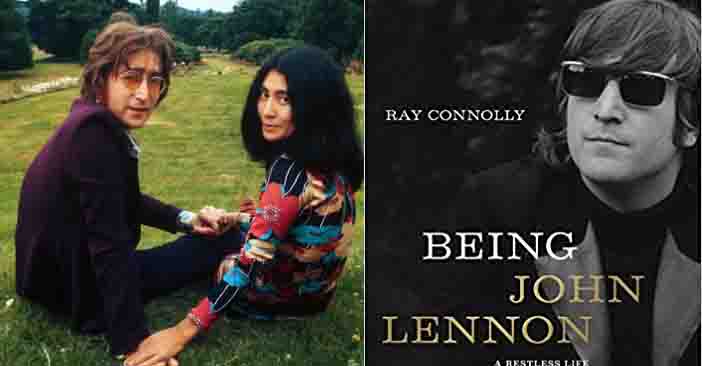
Few songs have marked a shift in pop music history like “The Ballad of John and Yoko.” Released by the Beatles in May 1969, the hit single — written by John Lennon and Paul McCartney, but recorded without George Harrison and Ringo Starr — features lead singer Lennon chronicling the events surrounding his wedding to Yoko Ono 50 years ago today, March 20, 1969.
“Peter Brown called to say, ‘You can make it OK, you can get married in Gibraltar near Spain,’ ” sings Lennon, referring to the personal assistant who served as best man at the wedding after the couple’s two previous attempts to get married had failed.T he wedding took place just eight days after McCartney married Linda Eastman in London.
Lennon, inspired by the series of events leading up to and during the Bed-In, found time to write “The Ballad of John and Yoko” on his honeymoon. Although Ono annoyed the other Beatles by showing up to their recording sessions and even offering her suggestions, Gruen says, “John was not the kind of person who could be controlled, told what to do. He did what he wanted to do.
At the time, he was still married to his first wife, Cynthia Lennon, but by 1968, he was posing nude with Ono on the cover of their first collaborative album, “Unfinished Music No. 1: Two Virgins.” Another joint LP, 1969’s “Wedding Album” — which will be reissued on Friday — featured them calling each other’s names over the sound of their heartbeats and used one of their wedding-day photos on the cover.

"The Ballad of John and Yoko" is a song written by John Lennon, credited to Lennon–McCartney, and released by the Beatles as a single in May 1969. The song, chronicling the events associated with Lennon’s marriage to Yoko Ono, was the Beatles’ 17th and final UK No. 1 single.
Several US radio stations declined to broadcast the song because of what they saw as sacrilegious use of the words "Christ" and "crucify" in the chorus.
Still, he persevered with being who he was, even to the point of writing and singing about sides of himself that were shameful: his excessive drinking, drug use, and violence toward women. The message of his emotional confessions in music was that he was a human trying to find his way — not a star whose life seemed perfect.
